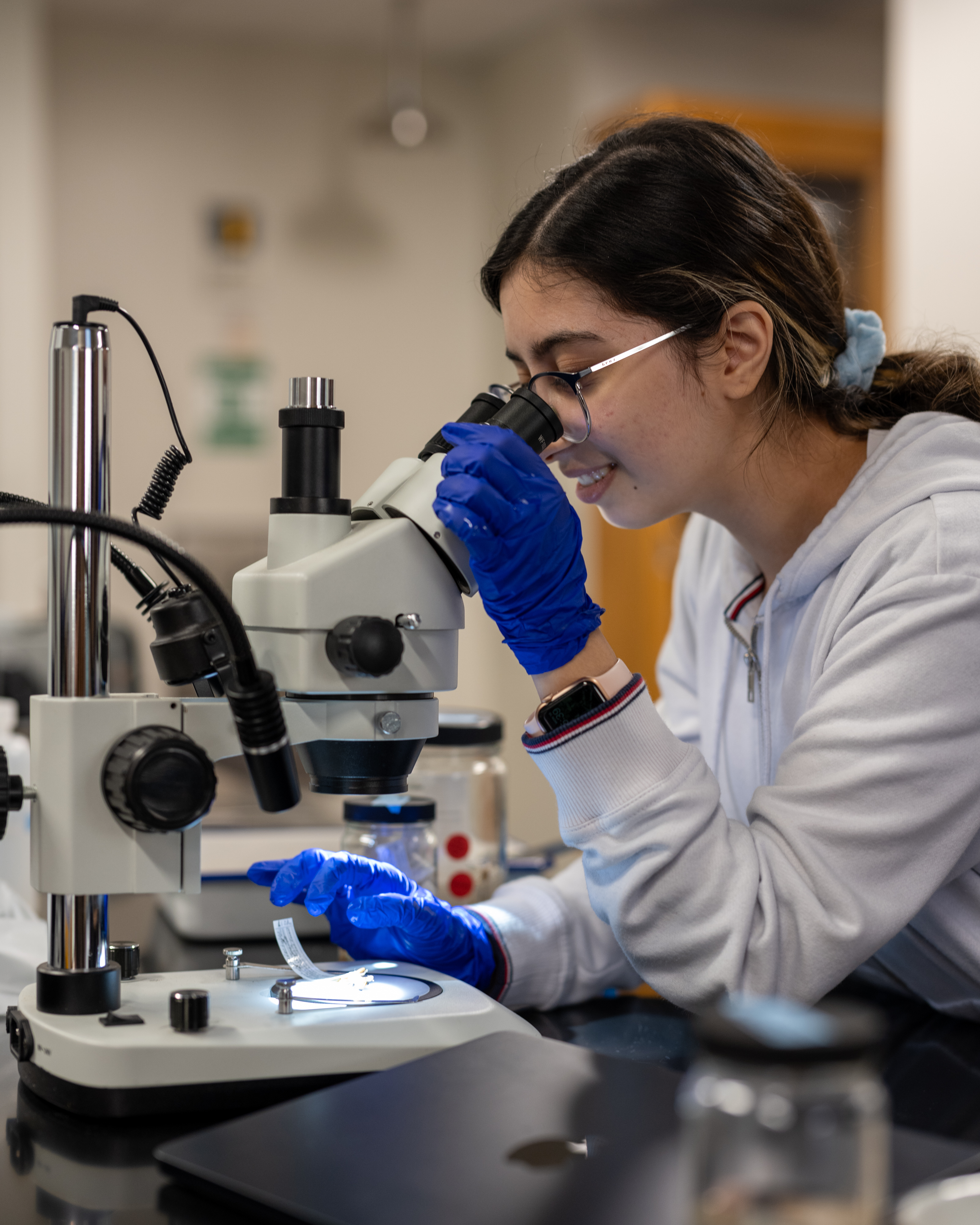
Our Research
The Biodiversity Discovery stream aims to increase our understanding of biodiversity and its evolutionary history. We ask questions about the ecology, evolution, behavior, and natural history of organisms (mostly amphibians and reptiles) using a variety of field and lab-based approaches. Our work relies heavily on preserved specimens from natural history collections at UT and from museums around the world that we borrow to discover and describe new species.


Our Strategy
Biodiversity Discovery stream students are engaged in both the process and analysis toward our research goals. Researchers are trained to 'think like a scientist' by developing and using critical thinking skills to create new knowledge through research.
Biodiversity Discovery researchers will focus on how to:
- use a variety of approaches and methods, including DNA sequencing, phylogenetic analysis, computed tomography (CT) scanning, and bioacoustics analysis
- apply best practices for data science using the R statistical software environment for analysis and visualization
- search for, interpret, and synthesize published primary scientific literature related to the field and evaluate it through critique
- make arguments from evidence and work together with peers to find solutions
- apply research skills to collect data, and use those data to formulate and test hypotheses and create new scientific knowledge
- scientific communication

Our Impact
Despite centuries of exploration and discovery, most biodiversity remains unknown to science. Documenting earth’s species and inferring evolutionary history is of paramount importance because species underpin the structure and functioning of the ecosystems upon which humanity depends. However, the number of un-described species relative to the human resources available to discover, describe, and classify them is a major challenge. Addressing this challenge requires integrative, organismal research that utilizes innovative biodiversity informatic tools to accelerate taxonomic syntheses, while simultaneously providing broad training to the next generation of organismal biologists.
Our Team

Tom Devitt
- Assistant Professor of Practice
- Research Scientist
- Integrative Biology
- Freshman Research Initiative
- College of Natural Sciences
- Texas Field Station Network
- Biodiversity Center
Research Educator | Biodiversity Discovery
Principal Investigators

David Cannatella
- Professor
- Department Chair
- Integrative Biology
- Texas Field Station Network
- Biodiversity Center
Associate Director for Collections, Biodiversity Center

David Hillis
- Professor
- Director, Biodiversity Center
- Alfred W. Roark Centennial Professor in Natural Sciences
- Integrative Biology
- Texas Field Station Network
- Biodiversity Center
- Interdisciplinary Life Sciences Graduate Programs
Resources
Course Credit
Research Outcomes
*undergraduate researcher
- R.U. Tovar, B.A. Dobbins, N.R. Hartman, S. Leelani, T.J. Devitt, D.M. García, P.M. Gignac, D.C. Cannatella,& D.M. Hillis. Parallel sensory compensation following independent subterranean colonization by groundwater salamanders (Eurycea), Proc. Natl. Acad. Sci. U.S.A. 122 (23) e2504850122, https://doi.org/10.1073/pnas.2504850122 (2025).
- Devitt T. J., Tseng K., Taylor-Adair M., Koganti S., Timugura A., Cannatella DC. 2023. Two new species of Eleutherodactylus from western and central Mexico (Eleutherodactylus jamesdixoni sp. nov., Eleutherodactylus humboldti sp. nov.). PeerJ 11:e14985.
- Chessher, C.*; Gluesenkamp, A.; Hillis, D. and T. J. Devitt. Population Structure of the Threatened Jollyville Plateau Salamander (Eurycea tonkawae). [conference presentation] 2022, Southwestern Association of Naturalists Meeting (virtual).
- Sherwin, M.*; Anagol, A.*, García Vázquez, U.; Rovito, S.; Parra Olea, G.; Hernández Austria, R.; Nieto Montes de Oca, A.; Flores Villela, O.; Campbell, J.; Davis, D.; Hillis, D. and T. J. Devitt. . New Species of Chirping Frogs (Syrrhophus) From Northeastern Mexico. [conference presentation] 2022, Southwestern Association of Naturalists Meeting (virtual)
- Best Poster in Integrative Biology at the Undergraduate Research Forum (UT Austin) awarded to Caroline C. Chessher for her poster The Conservation Implications of Phylogeography in a Species of Threatened Salamanders (Eurycea tonkawae)
- AmphibiaWeb Species Accounts
